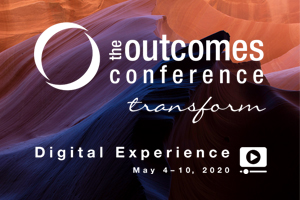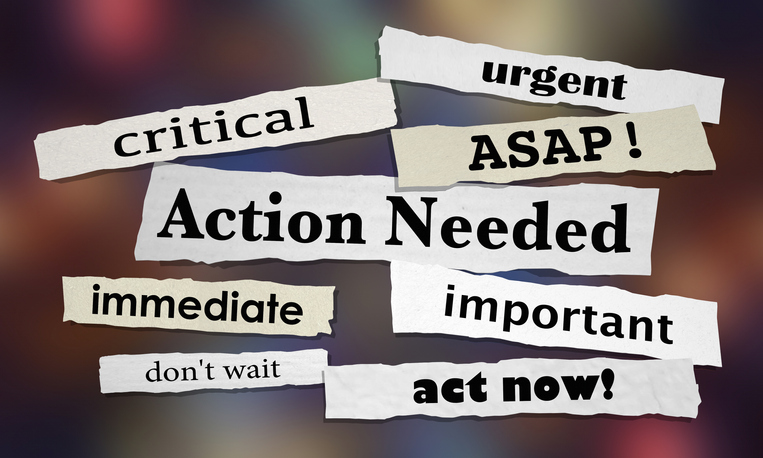
Fundraising in Crisis – Part II By Ron Frey
COVID-19: Fundraising in Crisis – Part II
When referencing the COVID-19 crisis, someone recently asked: “Is this a blizzard, the onset of a long hard winter, or the beginning of an Ice Age?”
In troubled economic times, many donors will evaluate their giving and make adjustments based on the need and how well their charities respond to the crisis at hand. They will typically remain loyal to the organizations where they have a meaningful personal connection.
Over the years, I’ve advised my clients to aim to be in the top three favorite charities on your donor’s list of giving options. You can do this by demonstrating wise stewardship, offering real solutions to problems, and genuinely caring for your donors.
During a crisis, you can demonstrate caring for your donors by harnessing technology. Have a day of prayer where they can share their prayer requests. Hold a video conference call to share stories of impact and update on ministry plans. Reach out by phone to those who may be alone or have special needs – widows, singles, the elderly. Be the source of encouragement that your donors need from you right now.
Make sure your donors know they are true partners. Now is the time to make deeper friendships!
Position Your Organization as “Essential”
This is a time of hyper-competition for donor dollars.
During the 2008 crisis, John Castles, Trustee of the Murdock Charitable Trust observed, “Sophisticated donors are going to look at the menu of charities and categorize those they feel are best managed and
able to flourish. I think we are going to see a lot of marginal nonprofits who have been able to compete okay, but cannot put forth that compelling argument about how distinctive and valuable they are. They need to clearly identify their purpose for being, tighten up their mission statement, and put forth a more compelling case for support. Some charities are marginal and under the ‘survival of the fittest’ may not be able to survive in this marketplace.” These words are even more true today.
Regarding COVID-19 John Castles says, “Sadly there are going to be many losers and fewer winners. Just like for profit companies who are cutting staff and closing their doors temporarily, the question is whether or not they will be able to reopen.”
So, get back to basics. Heighten the awareness of your core mission. Donors will give to organizations who can explain why what they do is unique and essential, especially if you are meeting a need that no one else can meet in the marketplace. If you are the only one serving a particular cause, you can demonstrate why you are essential to the community and strengthen your case for support.
One of my camp clients is looking for new ways to use their facilities to meet community needs – housing the homeless, providing quarantine facilities for hospitals, serving the first responders. Now is the time to find better ways of delivering the most essential services and then make sure your donors are kept informed of your progress.
Don’t Stop Fundraising!
Often charities slash the development budget during economic dips leading to lower morale in the fundraising department. But the time to invest more dollars into fundraising is when economic times get tough. It makes no sense to cut at just the time when your fundraising success most depends on it. Instead, ramp it up.
Consider a Partnership
Donors do not want to support a “sinking ship,” especially when there are other great organizations out there that are well run and have capable leadership. So, build a network of key relationships with other organizations. Don’t go it alone.
John Castles suggests organizations on the margins should consider a partner. “If they don’t partner, they are not going to survive, let alone thrive. It takes a great deal of discipline to look at themselves and ask: Would we do a better service to society if we partnered with another ministry? In a healthy economy they would not be willing to do so, but today, it may be the only option.”
It’s not a competition but a collaboration. Many grant makers look favorably on partnerships that make good economic sense and foster a shared mission. Who could be your partners?
Recognize Your Donors’ Need to Give
Some non-profit leaders believe that asking for a charitable gift in times like these is like taking food off the donor’s table. This “we win, you lose” mentality ignores the deep-seated emotional need of the donor to give, even during tough times.
When funds are slow in coming in, it is easy to fall into a mental trap that says, “We need the donor’s money.” Instead, fundraisers should remember the words of Jesus who said, “It is more blessed to give, than to receive.” The donor’s need to give is greater than our need to receive it!
And when they give sacrificially to support your cause, it can bond your relationship with them even more – in the long run. Keeping donor relationships alive will depend on their relationship with you and their belief that your organization really makes a difference. Do all you can to strengthen both.
This is your opportunity to fine tune your fundraising strategy, get back to basics, clarify your mission, and strengthen your core donor relationships. Make the most of it!
####
Ron Frey is president of Frey Resource Group, helping nonprofit organizations achieve success in leadership, governance and fundraising.
 Join us for The Outcomes Conference Digital Experience 2020, designed for a leader like you in such a time as this.
Join us for The Outcomes Conference Digital Experience 2020, designed for a leader like you in such a time as this.
Enter into an ecosystem of community where leaders will convene, connect, and be equipped for this unprecedented time.
Register Today

What is Christian Leadership Alliance?
Christian Leadership Alliance equips and unites leaders to transform the world for Christ. We are the leaders of Christ-centered organizations who are dedicated to faithful stewardship for greater kingdom impact.
Sign up for FREE blog updates.
Upcoming Events
Check back later!



